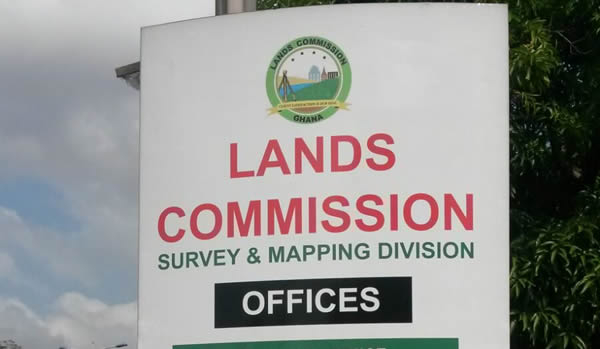In Ghana, workers at the Lands Commission receive the highest amount of bribes from Ghanaians seeking the services of the commission.
The amount average amount they receive is GHC 1,669. Prosecutors, judges or magistrates are the next in line for fat bribes.
They receive an average of GHC1208. Officers of the Ghana Immigration Service receive GHC 950. The least amount of GHC 91 is received by other health workers apart from doctors, nurses and midwives.
READ ALSO: Newly Constructed Kwabenya Police Barracks Project Commissioned
This is according to “the United Nations Office on Drugs and Crime (UNODC) 2021 survey on People’s Experience in Paying Bribes in Ghana.
“As mentioned in the chapter “How Bribery Works”, the average cash bribe paid to public officials in Ghana masks huge variations in the size of cash bribes, which depends on a number of factors, such as the economic reasons for which bribes are paid, the service sought at the time of payment and the area where bribes are paid.
Similarly, there are large variations in the size of bribes according to the type of public official who receive them. Among all types of public official for which there was sufficient data, with an average of Ghanaian cedi 1,669, the largest cash bribes were paid to Lands Commission Officers, and Prosecutors, judges or magistrates (Ghanaian cedi 1,208).
READ ALSO: 14 Promises Ghanaians Must Hold Mahama Accountable For If He Becomes President
By contrast, much smaller average amounts were paid to health workers (Ghanaian cedi 91–253) and police officers (Ghanaian cedi 220),” the report said.
Corruption continues to be a canker in Ghana, which constantly gets the attention of politicians and ordinary citizens. Notwithstanding not much has been achieved in fighting it. The report has shed light on corruption and where it happens the most.
“The analysis so far has pertained specifically to the experiences of bribery in relation to public sector officials. However, the issue of corruption and, more specifically, of bribe-paying extends to the private sector. The survey also inquired about respondents’ experiences with six types of private sector employee: doctors, nurses and midwives in private hospitals, teachers in private schools, employees in private banks, employees in private insurance companies, private security guards and other employees in private businesses. The survey shows that, overall, Ghanaians are less likely to interact with private sector employees than public officials: 38.8 per cent reported having had contact with a business entity employee in 2021, versus 83.8 per cent with public officials. As in the public sector, the contact rate with private sector employees varies substantially across the regions of Ghana, with the contact rate being much higher in the Greater Accra, Western and Western North regions, at 59.1, 50.0 and 45.0 per cent, respectively, than in regions such as the Upper West, Oti and Bono East, at 11.2, 17.7 and 18.5 per cent, respectively. The contact rate with private sector employees is much higher in urban areas (46.9 per cent) than in rural areas (27.6 per cent) of the country as many more private services are more likely to be accessed.”

